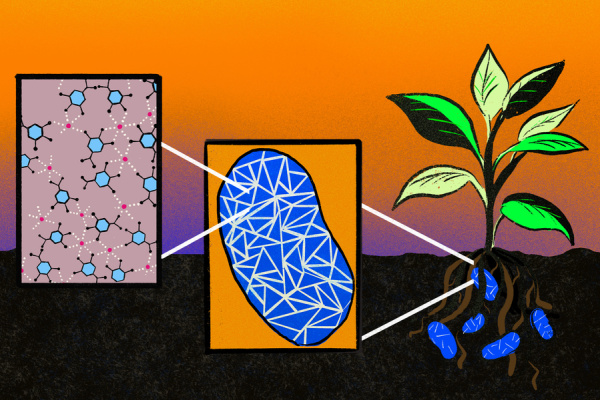Our Research Engineered microbial cocultures to detect and degrade organophosphates

Spraying pesticide in hazmat suits. Image Credit: The Intergovernmental Science-Policy Platform on Biodiversity and Ecosystem Services
Principal Investigator
Ariel Furst
- Raymond (1921) & Helen St. Laurent Career Development Professor
- Department of Chemical Engineering
Ariel L. Furst is the Cook Career Development Professor of Chemical Engineering at MIT. Her lab combines biological, chemical, and materials engineering to solve challenges in human health and environmental sustainability. She is a CIFAR Azrieli Global Scholar, the recipient of a 2022 3M Non-Tenured Faculty Award, and the Army Research Office Early Career Award. She is passionate about STEM outreach and increasing the participation of underrepresented groups in engineering.
Challenge:
Can we detect and degrade organophosphate pesticides in the environment? Can we scale this technology for autonomously deployable monitoring?
Research Strategy
- Engineer two microbial strains to act together to degrade pesticides and detect their degradation products
- Incorporate strains into handheld electrochemical device for on-person monitoring
- Develop autonomous devices based on these strains for continuous environmental monitoring
Project description
Organophosphates, commonly used as pesticides, are extremely toxic to humans. Though some have been discontinued, many of these toxic chemicals remain widely available and continue to be used in agriculture and mosquito control, often aerosolized for distribution. Most detection strategies monitor organophosphate degradation products in blood and urine following exposure, with few examples of detection at the time of dispersal. The Furst Lab will engineer microbial cocultures for the targeted electrochemical detection and degradation of these harmful compounds. This approach provides a modular, adaptable strategy to detect and degrade harmful toxins and is expandable to additional toxic compounds.
Outcomes
- Successfully engineered surface-displayed enzymes for pesticide degradation that are rapid and enable 100% efficiency for degradation
- Successfully engineered electroactive microbes to detect degradation products of pesticide degradation electrochemically
- In the process of integrating microbes into a single system for RFID-based sensing and integrating the enzymatic materials into disposable masks for protection of agricultural workers
Publications
Perspective—electrochemical sensors for neurotransmitters and psychiatrics: steps toward physiological mental health monitoring
Marjon Zamani, Tatum Wilhelm, and Ariel Furst, Journal of the Electrochemical Society, 2022
Surface requirements for optimal biosensing with disposable gold electrodes
Marjon Zamani, Victoria Yang, Lizi Maziashvili, Gang Fan, Catherine M. Klapperich, and Ariel L. Furst, ACS Measurement Science Au, 2021
A microbial electrochemical technology to detect and degrade organophosphate pesticides
Amruta A. Karbelkar, Erin E. Reynolds, Rachel Ahlmark, and Ariel L. Furst, ACS Central Science, 2021
News
Additional Details
Impact Areas
- Water
Research Themes
- Water Purification & Desalination
- Sensors & Monitoring
Year Funded
- 2021
Grant Type
- Seed Grant
Status
- Completed

